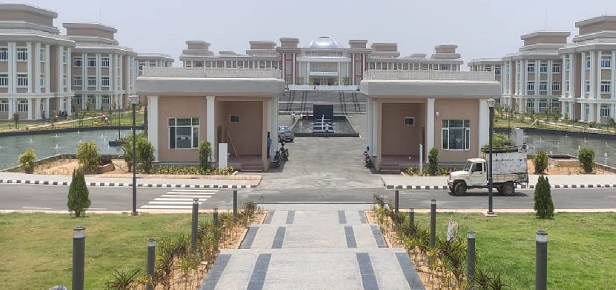The division judge bench of the Jharkhand High Court held that a dying declaration should be consistent and there should not be any inconsistency. The statement which is to be treated as a dying declaration must be interpreted in the light of surrounding facts and circumstances. In the presence of inconsistencies, the medical fitness of a person making such a declaration at the relevant time assumes importance along with other factors, such as the possibility of tutoring by relatives.
Brief Facts:
The factual matrix of the case is that it was stated in the fardbyan that there was an altercation with the appellant in the evening. Then, while she was in her bedroom with her husband, the appellant and the other two accused who are father-in-law and brother-in-law entered with the jar of kerosene oil and set her on fire and her husband tried to save her. Thereafter, she was taken to the hospital for treatment. Furthermore, the case was registered under was registered for offences under Sections 498-A, 324, 307/34 IPC. After the death of the deceased, Section 304 B of the IPC was added but ultimately, a charge sheet was submitted under Section 302/34 of the IPC. The trial court convicted the appellant and acquitted the other two accused. Aggrieved by this, the present appeal is filed.
Contentions of the Appellant:
The Appellant contended that the dying declaration of the deceased can’t be accepted due to contradictions and the doctor also has not certified that the deceased was in a fit state of mind to get her statement recorded. In the absence of the said certification and considering the nature and extent of injury, which is burn injury, the said statement which forms the basis of the First Information Report becomes doubtful and unreliable. It was furthermore contended that the investigating officer admitted that there were two dying declarations and the second dying declaration is hit by the Section 162 CrPC and cannot be treated as the first version.
Contentions of the State:
The state contended that on the fardbyan the doctor has put his signature which is itself indicative of the fact that the deceased was in a fit state of mind. It was furthermore contended that the death is homicidal and cannot be said to be accidental, which is clear from the evidence laid by the parties.
Observations of the court:
The Hon’ble Court observed that in terms of a dying declaration, it ought to be trustworthy and voluntary. The individual making the dying declaration must be in a fit state of mind. There should be no contradictions in a dying declaration; it should be consistent. It is necessary to consider the surrounding facts and circumstances when interpreting the statement that is to be regarded as a dying declaration. When there are discrepancies, the health of the person making the declaration at the appropriate time becomes important, in addition to other considerations including the likelihood of family members providing tutoring.
The Court relied upon the judgments titled Purshottam Chopra & Anr. Vs. State (Govt. of NCT of Delhi), Abhishek Sharma Vs. State (Govt. of NCT of Delhi), Ravi Kumar @ Kutti Ravi Vs. State of Tamil Nadu, Madan @ Madhu Patekar Vs. The State of Maharashtra, and Jai Karan Vs. State of (N.C.T. Delhi).
The court noted that the statement of the deceased based on which the fardbyan was recorded was not her first statement. The deceased in her first statement deposed that the burn was accidental which was from the lamp. Therefore, the statement of the victim cannot take the form of a dying declaration as there was tutoring and application of pressure and was not voluntary.
It was furthermore noted that the statement of the deceased is hit by section 162 of the CrpC and there has to be some corroborative evidence in order to implicate the accused.
Based on these considerations, the court set aside the judgment of conviction and order of sentence passed by the learned court below.
The decision of the court:
With the above direction, the court allowed the appeal.
Case Title: Raj Rani V. The State of Jharkhand
Coram: Hon’ble Mr. Justice Ananda Sen and Hon’ble Mr. Justice Gautam Kumar Choudhary
Case No.: Criminal Appeal (D.B.) No.122 of 2011
Advocates for the Appellant: Mr. A.K. Kashyap, Sr. Advocate, with Mr. M.B. Lal, Advocate.
Advocate for the State: Mr. Saket Kumar, A.P.P.


